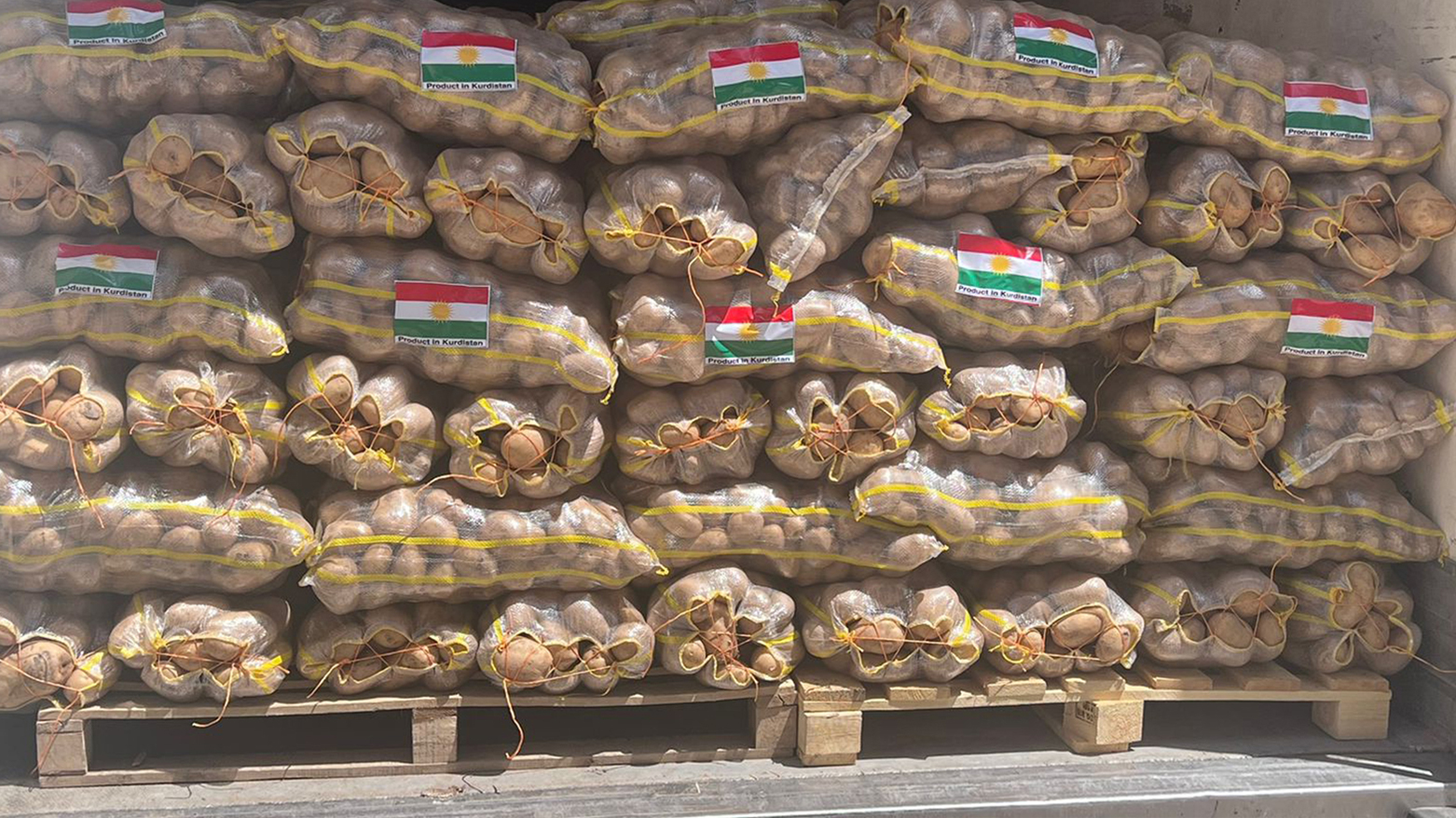Nearly 1,000 tons of Kurdistan Region potatoes have been exported to the UAE since August
“The process of exporting Kurdistan potatoes to the UAE continues; about 300 to 400 tons of potatoes are exported each week through several containers,” Mushir added.

ERBIL (Kurdistan 24) – Bashar Mushir, the general director of Kurdistan-Holland (K-H) Company for Agricultural Investments, told Kurdistan 24 on Tuesday that nearly 1,000 tons of potatoes have been sent to the United Arab Emirates (UAE) since the beginning of August.
An export contract for 5,000 tons of potatoes was signed in Erbil on Aug. 7 between traders of potatoes in the Kurdistan Region and the UAE. The contract stipulates that the amount may increase if both parties agree.
“The process of exporting Kurdistan potatoes to the UAE continues; about 300 to 400 tons of potatoes are exported each week through several containers,” Mushir added.
Moreover, according to statistics provided by the Ministry of Agriculture and Water Resources of the Kurdistan Regional Government, farmers in the Kurdistan Region produced approximately 700,000 tons of potatoes this year, of which approximately 500,000 tons were produced in Bardarash district of Duhok province.
Meanwhile, the Kurdistan Region Investment Board Chairman, Mohammad Shukri, told Kurdistan 24 on Tuesday that the export of potatoes to the UAE was the result of efforts made by Prime Minister Masrour Barzani, in coordination with the UAE Consul General.
Shukri also revealed that this year they are working to export grapes, apples and figs to Gulf countries, especially the UAE.
Recently, KFC, McDonald’s and Hardee's restaurant chains in Gulf countries have sought Kurdistan Region potatoes.
Read More: Gulf KFC and Hardee's restaurants seek Kurdistan Region potatoes
In Dec. 2022, the PM Barzani highlighted the significance of enhancing the Region’s “underdeveloped” agricultural sector to further strengthen its economy and diversify its revenues. He expressed his government's support for both domestic and foreign investors to participate in the development of the sector, which could guarantee the Region's food security.